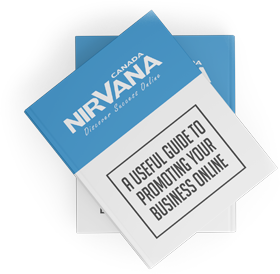Categories
- AngularJS Development
- Awards
- Business
- Canada Digital Adoption Program
- Content Marketing
- Digital Marketing
- Ecommerce Development
- Email Marketing
- Magento
- Microsoft 365
- Mobile App Development
- Mobile Optimization
- MongoDB
- Node.js
- Online Marketing
- Search Engine Optimization
- Shopify
- Social Media Marketing
- Web Development
- Website Design
- Website Maintenance
- WordPress Websites

Download Our Digital Marketing Ebook
Download Our Digital Marketing Ebook
In Canada, Android operating systems make up approximately 50% of the market share for mobile users, while worldwide Android OS capture over 70% of the market. Thanks to diversity and the relative affordability of Android supported devices, Android based apps will continue to be an important segment of new app development.
New apps come out daily, with over 2.87 million currently available in the Google Play store. If your app is to going to stand out in this crowded field, it will need to offer users something that differentiates it from the competition. With that in mind, let’s explore some of the current and up-and-coming Android app trends for 2021.
Instant Apps
Instant apps are drastically helping to increase user engagement and app installs by giving users the opportunity to experience the features of a native feeling app, without having to download it first. Android development tools makes it simple to create both an instant app and a full feature download.
On-Demand Apps
On-demand apps provide users with instant access to services, such as food-delivery, medical services or hotels, without having to search through multiple sources. Convenience is key, and on-demand apps are making everyday tasks easier, ensuring this development trend will continue into 2021.
Flutter
Perfect for cross-platform development, Google’s Flutter allows for the creation of striking native apps in record delivery times, thanks to a single shared codebase. Despite its flexibility, Flutter does not sacrifice anything in terms of performance, offering apps with a rich UI/UX that function across both Android and iOS, making it a preferred framework for many developers.
Jetpack
Jetpack is making Android app development faster and easier with a collection of software components that help to simplify complex tasks. Broken down into 4 main categories, including foundation, architecture, behavior, and UI components, Jetpack offers developers a suite of pre-existing libraries and tools that make creating high-performance, user-friendly apps simpler.
AI
As we become more and more reliant on connected devices and instant access to information, AI is becoming increasingly important in app development. From chatbots and smart assistants, to personalized recommendations and tailored marketing material, AI is helping to improve the way that apps communicate, analyze, and interact, providing users a more tailored experience. This trend will continue to dominate app development as capabilities become increasingly sophisticated.
VR and AR
Just in time to take advantage of 5G capabilities, VR and AR (virtual reality and augmented reality) are becoming an increasingly common feature in Android app development. With rapid data transfer speeds, improved bandwidth, and reduced latency, 5G is allowing developers to take advantage of AR and VR tools to provide users with a more subversive UX without worry of slow run times.
IoT
It’s no longer just desktop and mobile devices that are connected to the internet. Wearables, appliances, cars, and even smart homes have changed the way that users interact with many everyday objects, and this has opened many door for app developers looking for new ways to engage with users. This trend is only just beginning to emerge, and the possibilities in the category for businesses will only continue to expand, as more devices become connected.

